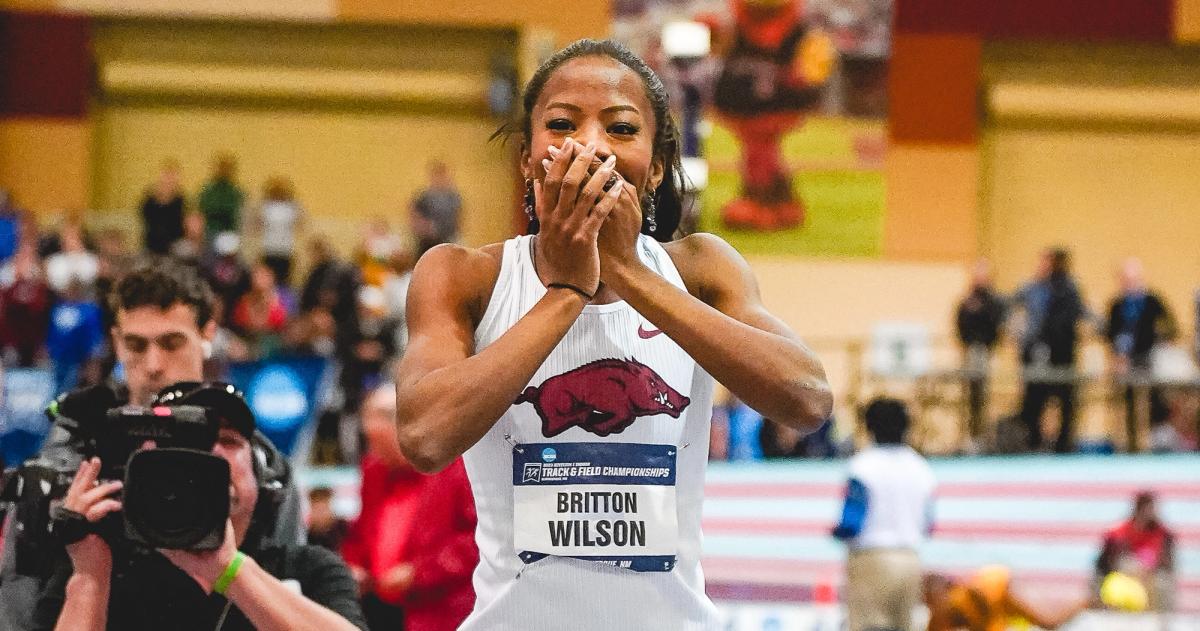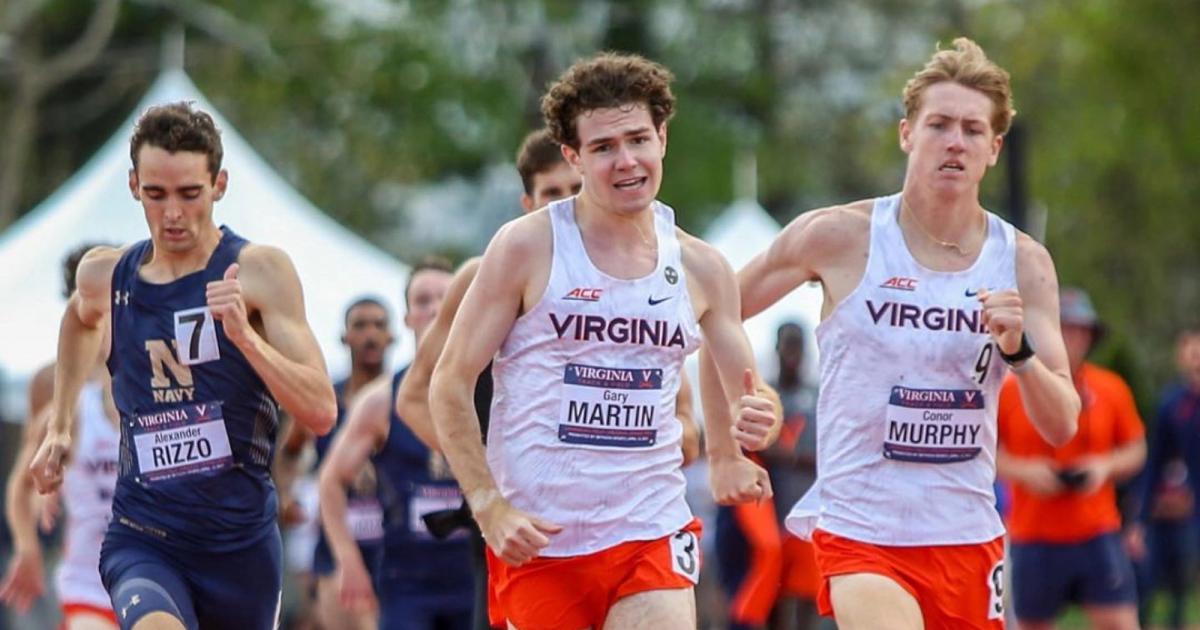By Kyle Merber
May 3, 2023
Immediately after winning the Penn Relays Distance Medley Relay, the Stanford women doubled back with a race to the airport. The next day they’d be competing at the Big Meet, a dual against their Golden State rival Cal Berkeley. With my east coast bias, it’s hard to imagine a non-championship event with more history, held in greater esteem than the Penn Relays. But my imagination isn’t based on facts.
In 1893, two years before the relay carnival (and before the cheesesteak was invented!), the first meeting between Stanford and Cal took place. Since then, Cal holds the series advantage 74-52-2 for the men, but the Cardinal women are up 29-14.
Spectators used to flock in droves to watch this dual meet, and yet today the stands are empty. Is it because back before Silicon Valley created too many things to do on our phones there was no other entertainment option besides attending a track meet? Or maybe Silicon Valley has inflated housing prices so much that the only remaining track fans in the Bay Area are the four or five Facebook product managers who happened to run in college?
Every time there’s a conversation about how to popularize track and field there’s the suggestion to lean into the team aspect. It worked in the past, right? But this isn’t the Olympics. There are over 7 billion people on Earth, all of whom have a country to root for, but there aren’t even eight thousand current Stanford undergraduates.
There is a reason that no two universities are actively creating new dual meets today. Back when horse and carriage was the primary mode of transportation these things made a lot more sense. But today, nothing screams, ‘MY COACH IS MAKING ME DO THIS!” like a 58.9 first 400m of an 800 (that was won in 1:53).
Does track always have to be scored as a team sport? There’s nothing wrong with accepting that outside of relays it’s an individual endeavor. Ask me who won any NCAA team title ever and watch my face go blank. Okay, that’s not true… I remember when Raevyn Rogers anchored Oregon to the win in the 4×400. But aside from that! If you are not affiliated with one of the schools in the hunt, then it seems inconsequential.
This constant push of team scores mattering most just creates another storyline that needs oxygen. As if there is not already an overwhelming amount to unpack in every single heat. Remember when German Fernandez was winning NCAAs his freshman year in the 1500, but the camera and commentators kept focusing on Jordan McNamara, who needed to get a single point? This feels pretty consistent with the point that I try to make week in and week out, that the sport needs to be easier to follow. It’s a challenge enough convincing anyone to care about even a single person or event, let alone forty.
I had this all typed out, and then I was made aware of the USC vs. UCLA dual meet, and it sort of won me back for a moment. UCLA’s second leg pulled no punches, making a grand gesture with a big pass with 100m to go – except there was still half the race left. And as USC’s anchor ran down the home stretch celebrating and taunting, the entire team crowded the track and chased him down to lift their hero up in celebration. It was fun, and there was emotion!
But then the officials disqualified both teams for unsportsmanlike conduct. That’s 100% of the participants, DQ’d! No one is happy about this. Rules in track tend to exist on a spectrum and discerning when to call “foul” is an important part of the job.
DQs aside I still won’t likely be tuning in to watch any dual meets next year.
Being a part of the team is the defining aspect of the student-athlete experience and for a lot of NCAA runners who won’t have the opportunity to earn a national title or an All-American certificate, this is their chance to contribute to something bigger than themselves.
And while team scoring might not matter to those of us on the outside, it means something to those in uniform. Dual meets should be the one place where leaning into rivalries should not only be allowed but encouraged – but what else is the point of them?

Kyle Merber
After hanging up his spikes – but never his running shoes – Kyle pivoted to the media side of things, where he shares his enthusiasm, insights, and experiences with subscribers of The Lap Count newsletter, as well as viewers of CITIUS MAG live shows.



